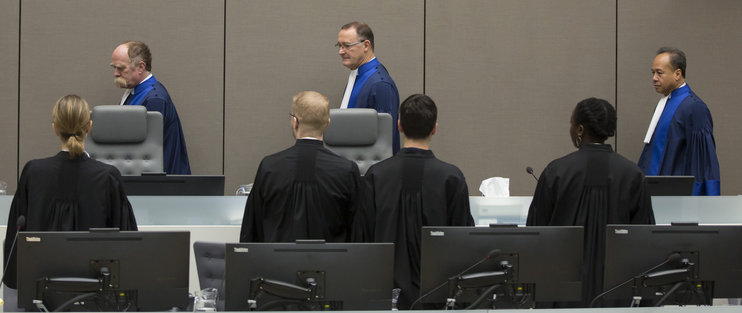By Susan Kendi
On Monday, July 10, former Lord’s Resistance Army commander Dominic Ongwen returns to court at The Hague after a three-week recess for a fifth session of hearings.
The fourth session of the trial heard seven witnesses mainly dual witnesses, registered as victims and witnesses.
On June 21, 2017, prosecutors asked to add two items to their list of evidence: English and Acholi transcripts of a radio interview given by a prosecution witness.
The recording of the radio interview was on the prosecution’s list of evidence, and disclosed to Ongwen’s lawyers as soon as they were available, but they have asked that the request be rejected. Ongwen’s lawyers argue that the prosecution failed to explain why the new items were being introduced. The audiotape, they argue, and the comments made on it by the witness during his testimony are what is of significance.
Defence lawyers argue that they have been disadvantaged by the late disclosure of the materials, but the judges rejected their objection.
Dominic Ongwen was first charged with seven counts of war crimes and crimes against humanity but after his surrender to rebels in the Central African Republic, ICC Chief Prosecutor Fatou Bensouda announced an additional 63 charges, bringing the total to 70.
Ongwen is facing charges of murder, abduction, displacement, rape, sexual slavery and forced marriage, among others.
Ongwen was abducted as a child by the LRA and quickly rose through the rebel group’s ranks to become commander of the Sinia Brigade, allegedly responsible for attacks in 2003 and 2004 that led to killings and displacement of thousands of people in camps for the displaced in Pajule, Abok, Odek and Lukodi.
Since the start of trial seven months ago, on January 17, 2017, 21 witnesses have testified. With the exception of culture expert Tim Allen of the London School of Economics and Acholi Chief, Rwot Oywak, all the other 19 have had their faces hidden and their voices distorted to prevent them from being identified. Lawyers have also been appointed to help them to avoid incriminating themselves.
Rwot Oywak testified about his abduction by the LRA and release as well as his role in peace talks between the rebels and the Ugandan government.
The trial has not been without its share of drama. On 1 February 2017, upon re-examination by the Prosecution and the Defence, the witness conceded that he was ‘confused’, while another told judges he had already said too much and was not certain of his safety once he returned home.
The fourth phase of the trial closed with Witness P-0252 winding up his testimony. The witness, testified on how his abduction, how he and other abductees from the Odek camp for the displaced were whipped after one abductee escaped; how he was ordered to beat an old man to death; and his life after leaving the Lord Resistance Army.
Throughout the trial, Ongwen has been sitting in the courtroom, dressed in a suit and with earphones, closely following the trial proceedings.







